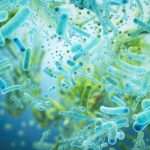What is already known
Breast milk can protect infants against common infections by sharing white blood cells, antibodies and other immune molecules from the mother. One type of such molecules are complement proteins, which work with — or ‘complement’ — antibodies to fight bacteria. Although scientists have long known that breast milk contains complement proteins, little is understood about the role of these proteins.
What this research adds
Researchers found that milk from female mice lacking key complement genes left pups susceptible to fatal infections with Citrobacter rodentium, a mouse pathogen that causes gut inflammation and lesions in the intestinal epithelium. Further experiments showed that complement proteins kill specific gut bacteria, creating a gut environment that is protective against harmful inflammation caused by C. rodentium.
Conclusions
The findings shed light on the role of complement proteins in breast milk and provide a mechanism through which breastfeeding may provide protection from certain bacterial infections.
Breast milk can protect infants against common infections by sharing white blood cells, antibodies and other immune molecules from the mother. New research done in mice suggests that specific molecules called complement proteins, which are found in breast milk, modify the infant gut microbiota in ways that promote health and defend against pathogens.
The findings, published in Cell, shed light on the role of complement proteins in breast milk and provide a mechanism through which breastfeeding may provide protection from certain bacterial infections.
“These findings reveal a critical role for breast milk complement proteins in shaping offspring’s gut microbe compositions and protecting against bacterial infection in the gut in early life,” says study senior author Fengyi Wan at Johns Hopkins University in Baltimore, Maryland. “This represents an important expansion of our understanding of breast milk’s protective mechanisms.”
Complement proteins are immune molecules that work with — or ‘complement’ — antibodies to fight bacteria. Although scientists have long known that breast milk contains complement proteins, little is understood about the role of these proteins. So, Wan’s team set out to assess the impact of the complement system on mice pups infected with a bacterial pathogen.
Breast milk benefits
First, the researchers engineered mice to lack key complement genes. Then, they used a pathogen called Citrobacter rodentium to infect pups fostered by female mice lacking complement. C. rodentium is related to certain types of diarrhea-causing E. coli and it triggers gut inflammation and lesions in the intestinal epithelium.
Compared with pups fostered by control mice, those fostered by females lacking complement were more susceptible to C. rodentium infections, the researchers found. The colons from these pups were more swollen and shortened compared with those from controls mice.
Pups feeding on milk lacking complement also tended to show growth delays, severe diarrhea, and high mortality rates after infection with C. rodentium. “The susceptibility of pups to [C. rodentium] challenge is largely or wholly determined by the presence of an intact complement system in breast milk,” the researchers say.
Protective environment
Further experiments showed that complement proteins kill specific gut bacteria, creating a gut environment that is protective against harmful inflammation caused by C. rodentium. “By selectively eliminating members of the commensal gut community, complement components from breast milk shape neonate and infant gut microbial composition to be protective against environmental pathogens,” the researchers say.
The activity of complement proteins against bacteria did not appear to require antibodies, the team found. These findings suggest that, rather than only work with antibodies to fight pathogens, the complement can directly kill bacterial cells.
“This opens the door to a lot of new investigations,” Wan says. “For example, elucidating the specific complement biology in breast milk and comparing that to complement biology in the blood, and assessing the role of complement beyond the antibody-dependent specific immune system.”











